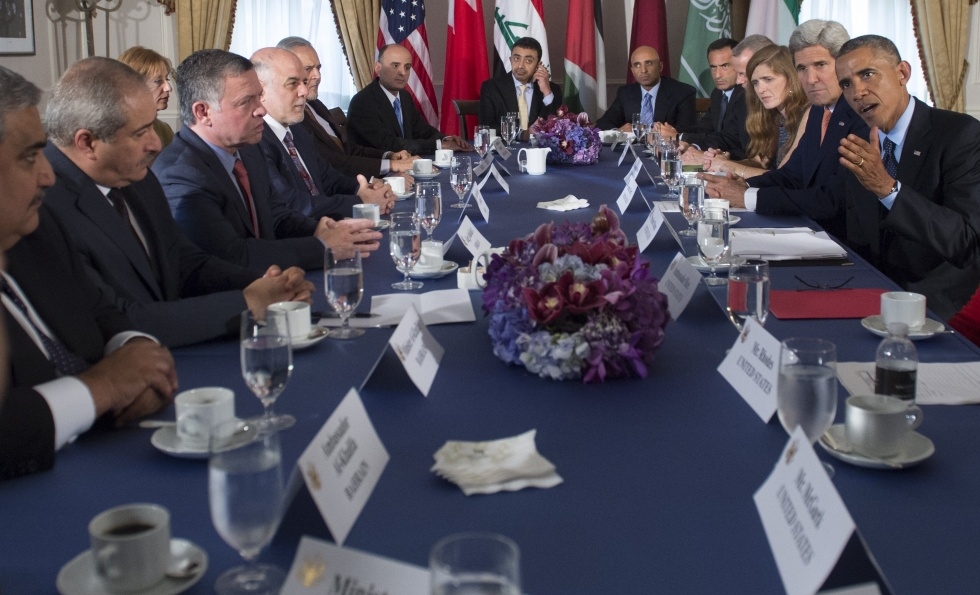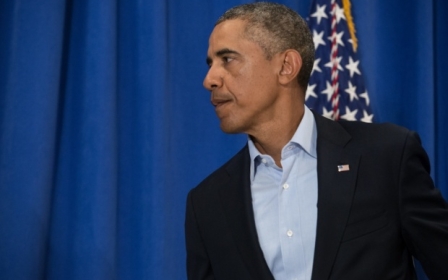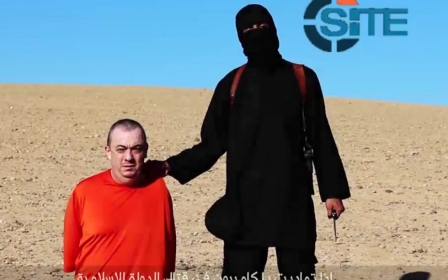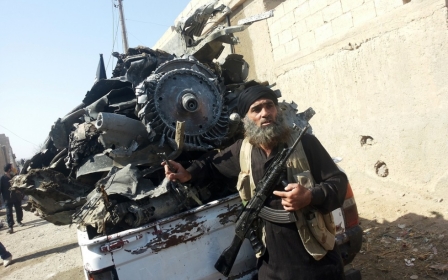UK Parliament to be recalled over IS as issue dominates UN

The UK Parliament is expected to be recalled on Friday to discuss whether or not the UK should join the US-led bombing campaign against militants in Iraq and Syria.
An official announcement is believed to be awaiting the conclusion of the Labour Party conference, which is due to end later today.
The BBC reports come shortly after UK Prime Minister, David Cameron appeared on American television saying that Britain could not “opt out” of the battle against IS.
“These people want to kill us. They’ve got us in their sights and we have to put together this coalition ... to make sure that we ultimately destroy this evil organisation,” he told NBC News.
Opposition leader, Ed Milliband - who many believe thwarted Cameron’s plans to launch air strikes against Syrian President Bashar al-Assad last year - said that he was “open to the possibility” of military intervention against the Islamic State.
However, he also warned that the “situation in Syria is somewhat different,” and said that he would call for a UN resolution on air strikes against militant positions in Syria, before backing such action.
Britain is a part of the US-led coalition against IS militants, which was agreed upon earlier this month, but London has so far resisted moves to engage the fighters militarily and has instead provided equipment and humanitarian assistance.
However, overnight on Tuesday the US-led campaign began attacking Islamic State and al-Qaeda linked targets in Syria with the US describing the aerial attacks as “ongoing.”
Further strikes also reportedly hit Islamic State-controlled territory in Syria on Wednesday with the UK-based Syrian Observatory for Human Rights claiming that sites in Abu Kamal, a town on the Syria - Iraq border, had been hit.
Five Arab countries - Saudi Arabia, Bahrain, the UAE, Jordan and Qatar - are participating in the strikes.
Speaking hours after the strikes were launched, US President, Barack Obama made a statement thanking all the “partners and friends with which we have worked for many, many years to make sure that security and prosperity exists in this region."
Flanked by Secretary of State, John Kerry and National Security Advisor, Susan Rice, Obama said he was "very appreciative" for the help of the five Arab governments that had assisted the latest Syria campaign, and also thanked the new Iraqi government which has asked for US assistance in its fight against IS.
His comments were made on Tuesday at a meeting with the Arab heads of state held on the side-lines of the United Nations General Assembly, which is due to begin its 69th session later today.
On Tuesday, NATO ally, Turkey also announced that it would now lend its support to the US-led coalition
"Turkey is very much part of this coalition, and Turkey will be very engaged on the frontlines of this effort," Kerry said after meeting Turkish officials in New York.
Speaking on national television, Turkish President, Recep Tayyip Erdogan said Ankara's contribution would consist of "all kinds of support including military and political."
Turkey had originally shied away from joining support to the coalition but some analysts have been suggested that Ankara would amend this policy once dozens of its hostages, held by IS, were released.
“Game changer”
The expansion of the US-led campaign into Syria was yesterday dubbed a “game changer” by the UN envoy for Syria, Staffan de Mistura.
"In order to move at the moment, there is obviously a game changer and the game changer is Da’ash and the fight against Da’ash," Staffan de Mistura told reporters at UN headquarters, using the Arabic acronym for the Islamic State group.
He said the current period was "delicate" and "dangerous," but expressed hope that aid agencies would now be better able to deliver assistance to 11 million displaced Syrians.
Asked if US air strikes would exacerbate the situation on the ground, de Mistura said he had no indication so far that the air campaign was affecting humanitarian assistance.
"On the contrary, I think that if there was any kind of reduction of the pressure by [Islamic State] on the local population, we'll have less, a little bit, moving across [the border] and therefore less of an urgent need of humanitarian assistance."
Despite de Mistura’s words, however, the strikes continued to be controversial, with opponents questioning the legal justification for extending the US-led war into Syria.
The US ambassador to the United Nations told the world body on Tuesday that Washington had carried out air strikes in Syria because Damascus had failed to clamp down on militant havens.
"The Syrian regime has shown that it cannot and will not confront these safe-havens effectively itself," said a letter sent to UN Secretary General Ban Ki-moon and seen by AFP.
"Accordingly, the United States has initiated necessary and proportionate military actions in Syria in order to eliminate the ongoing [Islamic State] threat to Iraq," Power added, while explaining that the US was acting under Article 51 of the UN charter, which justifies intervention if the threat is located is a state that is unwilling or unable to prevent the use of attacks on its soil.
She also explained that the United States had initiated military action against al-Qaeda elements in Syria "to address terrorist threats that they pose to the United States and our partners and allies."
“The United States has initiated necessary and proportionate military actions in Syria in order to eliminate the ongoing [Islamic State] threat to Iraq, including by protecting Iraqi citizens from further attacks and by enabling Iraqi forces to regain control of Iraq’s borders,” the letter added.
US President Barack Obama had suggested that he would seek specific Congressional authorisation for the expansion of the campaign in Iraq and Syria, but with mid-term elections in November, the White House has shied away from a vote.
Instead, Obama’s administration has chosen to rely on earlier Congressional authorisation - granted in the wake of the September 2001 attacks - that allows the US to strike against al-Qaeda.
While IS began as an al-Qaeda offshoot, the two groups have since split.
Unlike Iraq, where the US is acting at the behest of the government, the US insists it has had no direct contact with the Syrian government and has repeatedly refuted assertions made by Damascus that it was in any way coordinating its attacks with Assad, or informing his government about the details of its campaign.
Despite the disconnect, Syrian foreign minister Bassam Abu Abdullah told BBC News on Wednesday that America and Syria were “facing the same enemy [and] we should cooperate,” and reiterated previous Syrian claims that the US had informed Damascus ahead of its strikes.
Abdullah also stressed that the Syrian army was leading the fight against militants on the ground in Syria but said that Syria would not invite foreign powers to intervene without a UN Security Council mandate. He said: “We can’t ignore the fact there is a Syrian government ... The Syrian army is still the only power [which] is fighting terrorism [for] three years.”
New MEE newsletter: Jerusalem Dispatch
Sign up to get the latest insights and analysis on Israel-Palestine, alongside Turkey Unpacked and other MEE newsletters
Middle East Eye delivers independent and unrivalled coverage and analysis of the Middle East, North Africa and beyond. To learn more about republishing this content and the associated fees, please fill out this form. More about MEE can be found here.




